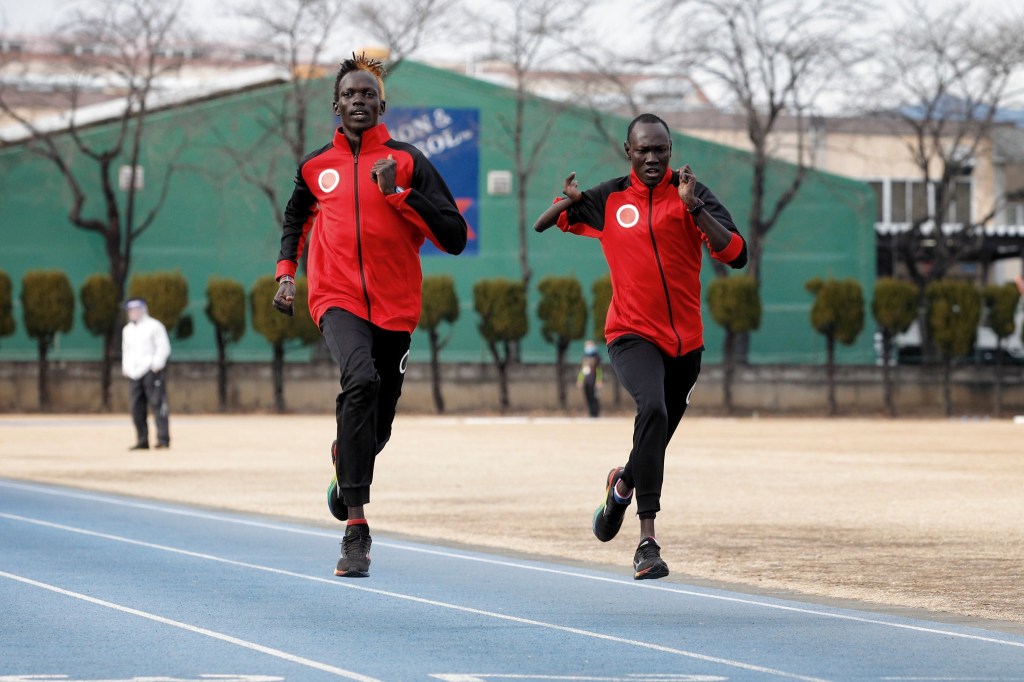MAEBASHI, Japan—One windy day in late January, a group of South Sudanese athletes and their coach show up for practice in Maebashi City, a two-hour train ride from Japan’s capital Tokyo. Wearing black and red track suits — resembling at least two colours of their national flag, they limber up for another day of training for the Olympics despite the slightly cold weather. But they are used to it. After all, they’ve been here for more than a year.
“In South Sudan, we have sandy running tracks, so you can imagine this is a lot better,” joked Joseph Omirok, their coach and a former Olympian himself.
Videos by VICE
While Japan exudes stability and wealth, impoverished South Sudan has endured civil war, upheaval and a refugees crisis since becoming the youngest independent nation in the world in 2011. Hailing from different parts of the country, the four young runners on South Sudan’s team in Maebashi are sending a different message: unity.
“We’re here to send a message of peace and hope,” coach Omirok told VICE World News.
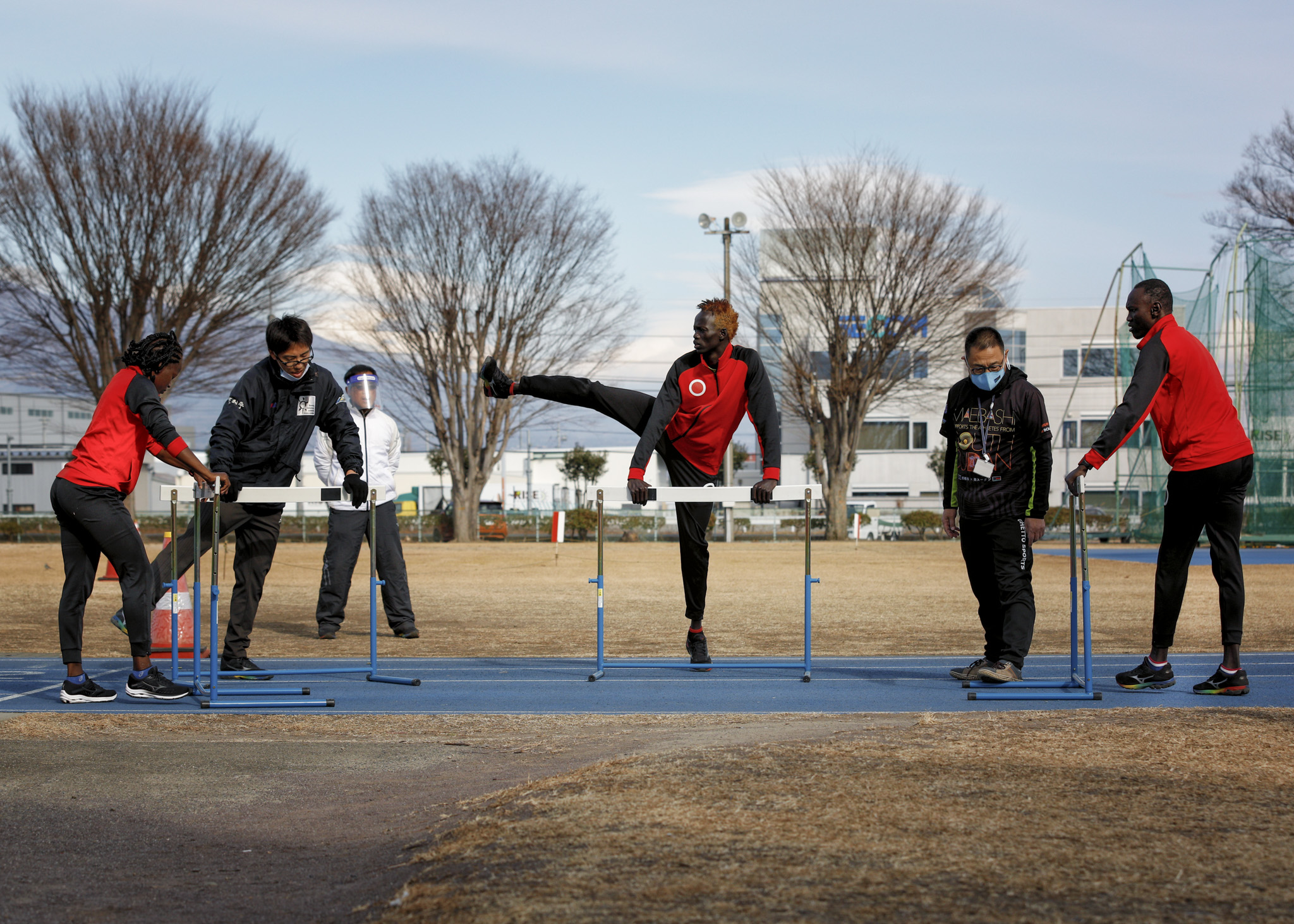
There is 400-metre hurdle specialist Akoon Akoon; 100m and 200m specialist Lucia Morris; 1,500m specialist Abraham Majok (who didn’t make it to practice when VICE World News visited); and 100m and 200m Paralympic runner Michael Machiek.
The setting is idyllic. Maebashi is mainly known for its pure water, greenery and as the birthplace of a number of Japanese poets. Picturesque mountains surround the town with over 300,000 inhabitants.
The municipality agreed to host the athletes after a former member of Japan’s International Cooperation Agency involved in sports development in South Sudan headed a search for a training venue for the team.
On the day VICE World News visited, the training session was in the hands of Japanese coach Hiroshi Yoshino and consisted mainly of stretching drills. Using the hurdles as an obstacle, they move sideways, one leg at a time. When Akoon struggles, one of the assistant coaches encourages him to pick up his pace.
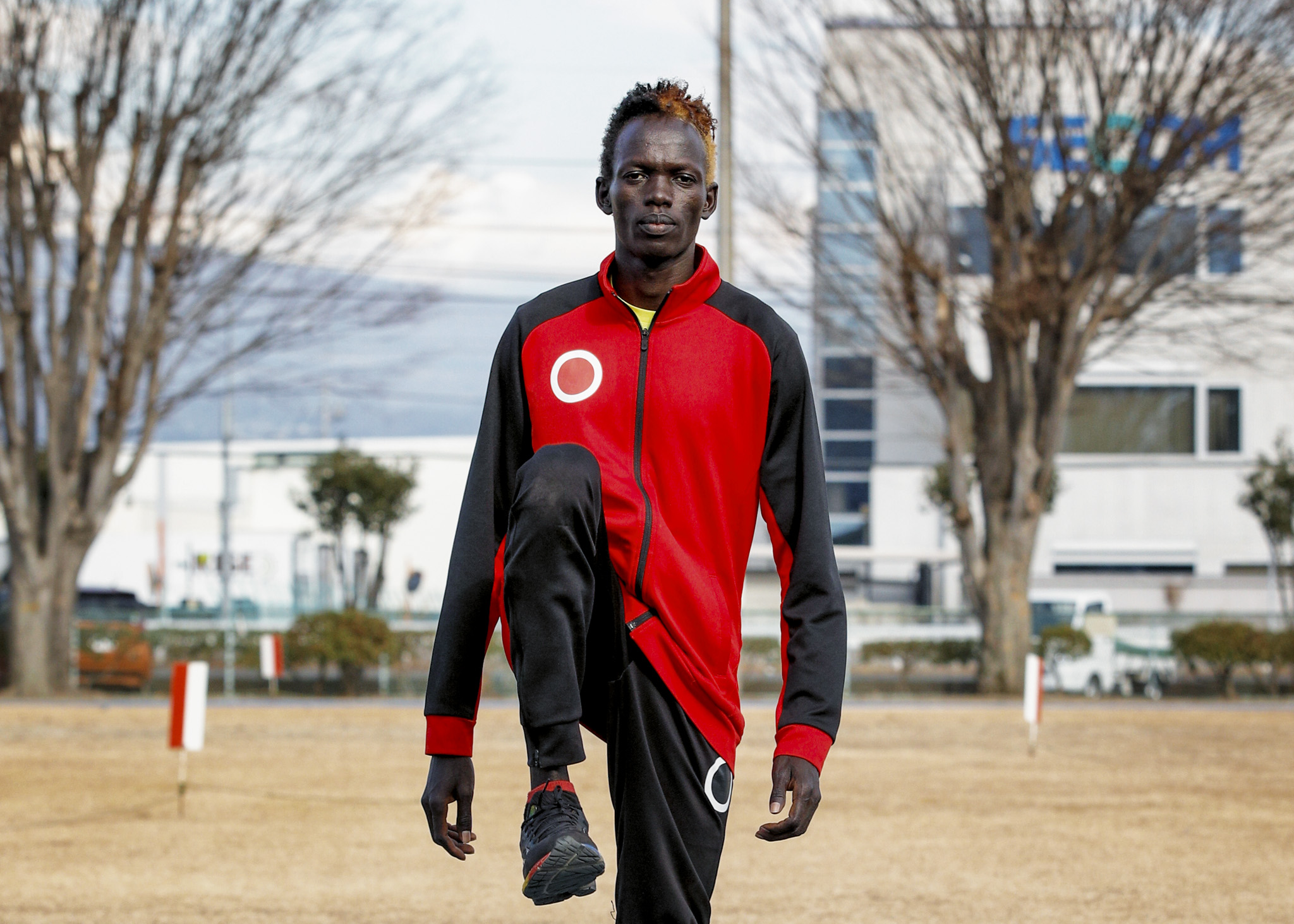
Akoon, 18, is the youngest of the group. Later on, sitting on a chair outside right next to the track, he shows a picture of himself standing bare-footed on a sandy field: a reminder of where he came from and how much he has accomplished against the odds.
“We ran without shoes,” he said. “Here we have everything we need, including a race track. In South Sudan, we don’t have hurdles, but here we have them. We don’t have tracks, we train in the mud.”
“We ran without shoes. Here we have everything we need, including a race track. In South Sudan, we don’t have hurdles, but here we have them. We don’t have tracks, we train in the mud.”
The group arrived in November 2019, at that time only expecting to stay for eight months. Then the pandemic hit and the 2020 Olympics got postponed. The city decided to prolong their sponsorship of the team by an extra year, at least until the Olympics started, allowing them to stay and train. As of this month, they are still there, and the plan is to stay for the games set for July.
Even though Japan has managed to endure the pandemic better than other major economies, a cloud of doubt still hangs over the fate of the games despite reassurances from the International Olympic Committee and the Japanese government.
A high-ranking politician of the biggest political party in Japan recently speculated that cancellation was a real possibility, though he later walked back the comments. No matter what develops, the number of fans will be severely limited.
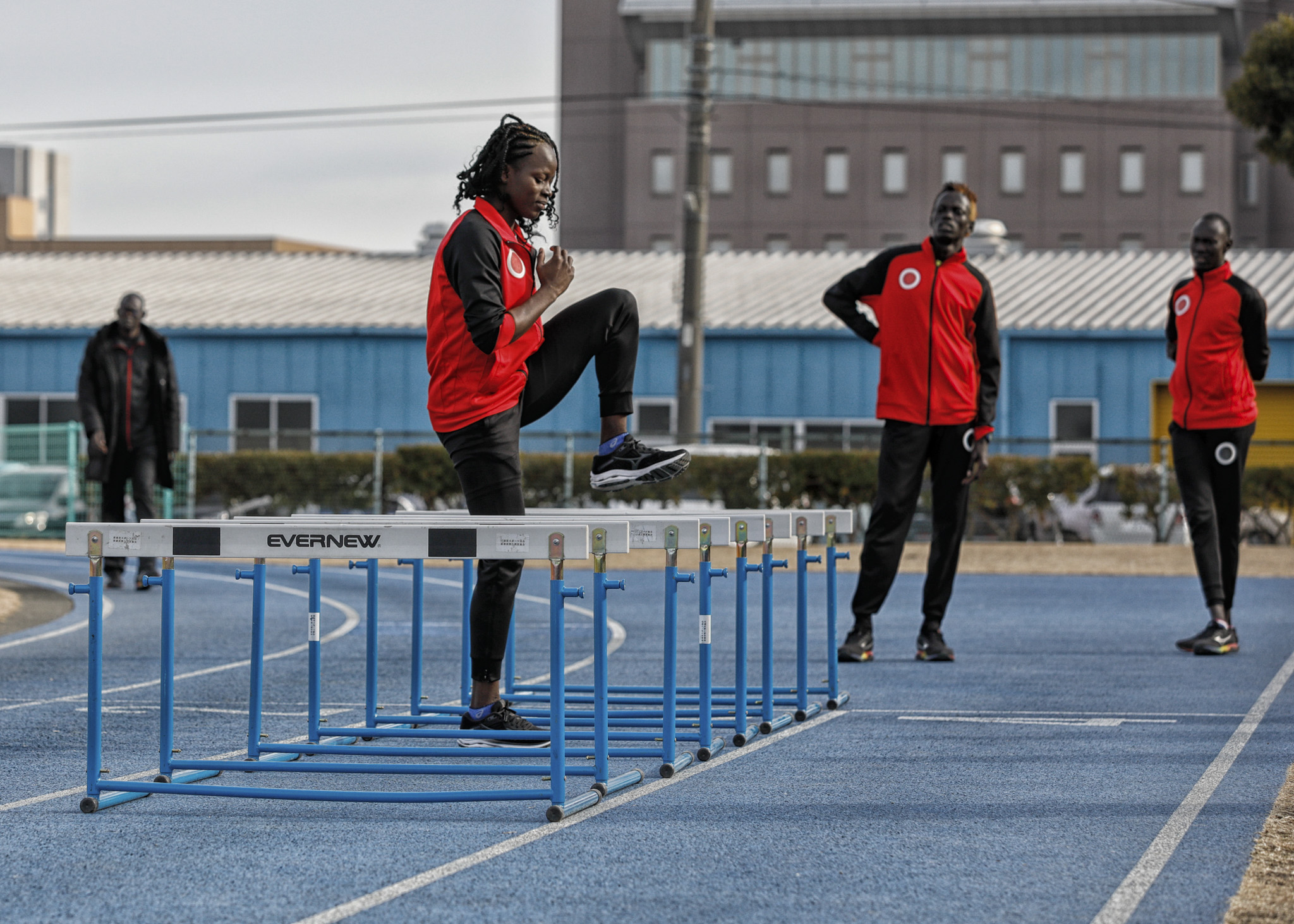
When asked during the training session if he thinks the games will go on, coach Omirok smiles, holds up his hands, and gestures towards the sky: “If God wants it, they will happen.”
As they wait it out in Maebashi, the team is happy to experience living abroad and learning about a different culture, but they also look forward to the days they can go home and tell their friends and family about what it was all like.
“For me, it’s like a dream going to another country, it’s the dream we had since we started as athletes,” said Michael Machiek, who is training for the 100m sprint in the Tokyo Paralympics, scheduled for the end of August.

The athletes have achieved a measure of local fame since arriving, being featured in news stories and fielding interviews while trying to keep focused on training. But life hasn’t always been easy, said coach Omirok, citing adjustments in everything from the weather to the food.
“Coldness, heavy rains and even the meals were different, it was hard to eat food. The way they cook is different from back home, we use charcoals, they use gas, so the taste is different,” he said, but added that they felt welcomed. “They are good people, lovely people, they love us so much, that’s why we’re happy.”
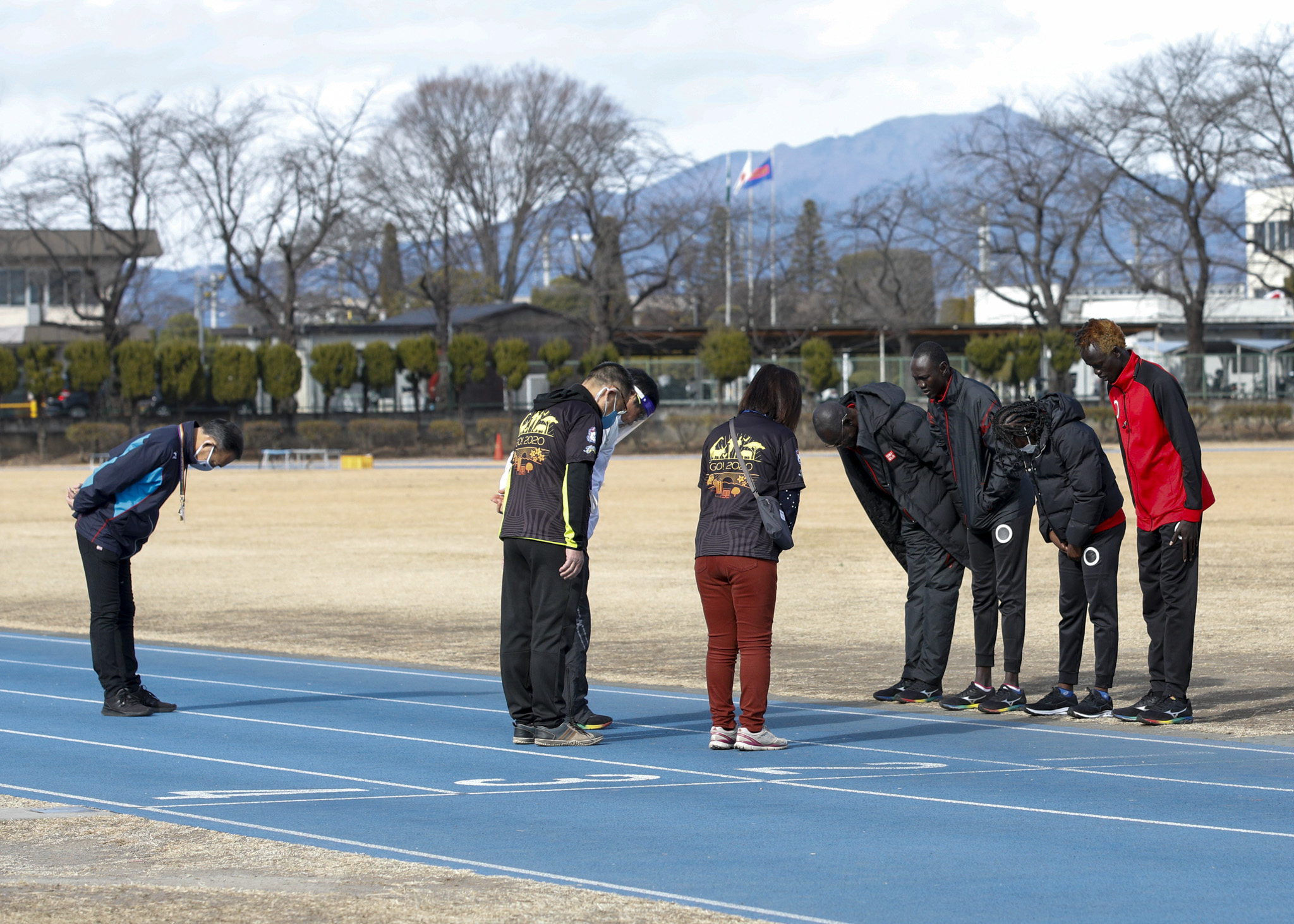
More than anything, however, the group is hungry for athletic glory.
“If you are going fishing in the river, you can’t go without expecting to catch fish. Our dream is competing, of course, running a good time. But of course, we want to get some fish,” Akoon said.
His teammates smile at the metaphor, then repeated it for fun. “Maybe I can get some fish too!” said Machiek. Lucia Morris, a reticent 18-year-old who will compete in the 100m and 200m sprint, chimes in: “I also think I will win some fish.”
She likes Maebashi even if she is a little homesick.
“It’s very different from home and I miss my family and friends, but I want to compete at the highest level,” she said.
Akoon nods his head in agreement.
“Yes, we miss our people. Our parents and siblings. They are proud of me, we talk via WhatsApp, sometimes we video call. Not all of them have a smartphone, so most times just voice call,” he said.
The discussion turns to what will happen when their time in Japan comes to an end.
“My plan after the Olympics is to transfer the knowledge I gained to my country so they can achieve something great,” coach Omirok said. “And so that they will not again have to suffer from anything.”
